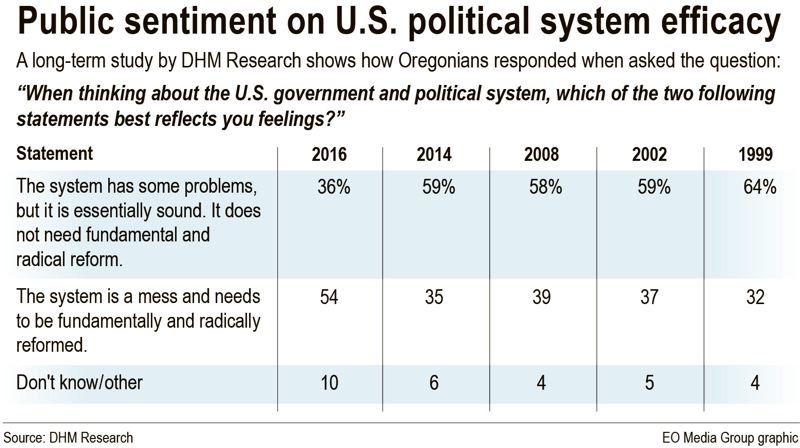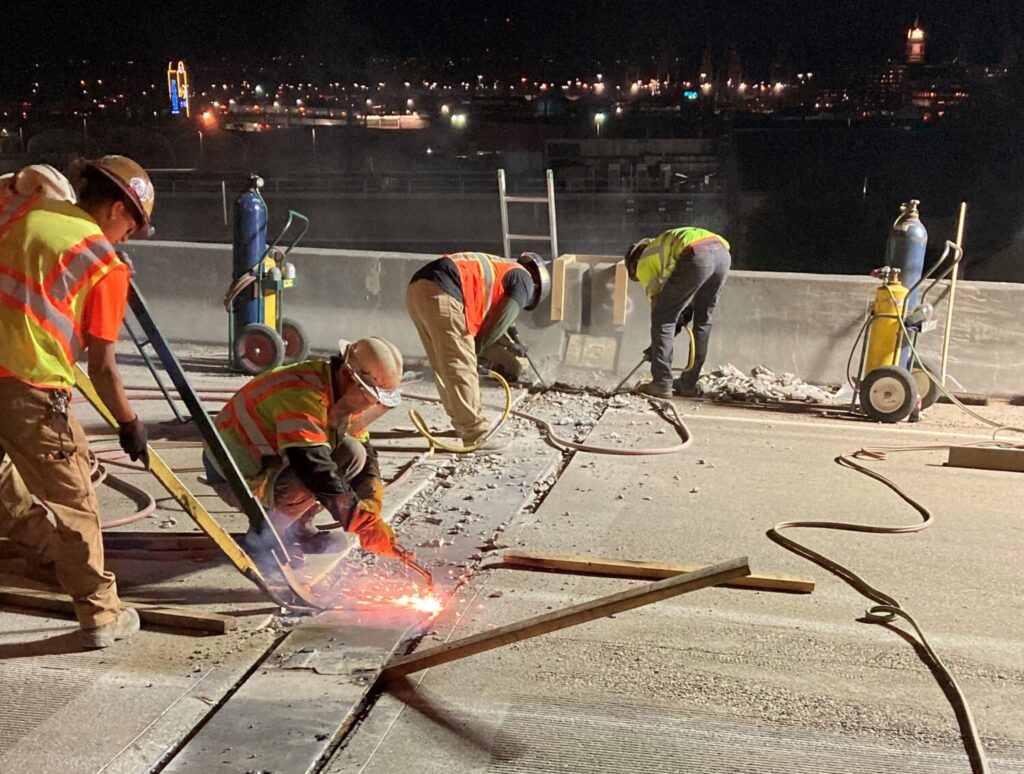Finding common ground at presidential memorial
Published 8:00 am Thursday, November 17, 2016

- EO MEDIA GROUP - DHM Research
Last Wednesday night, before the riots of the next night, protesters peacefully gathered in downtown Portland to show their displeasure over the previous night’s election results. Among the signs at Pioneer Courthouse Square were a pair of banners that read: “Honk if you’re fed up” and “Honk if you will fight for change.”
The words took me back to a recent visit to the Jefferson Memorial in Washington, DC when a quote of his, inscribed on a wall, stopped me in my tracks: “As new discoveries are made, new truths discovered and manners and opinion change, with the change of circumstances, institutions must advance also to keep pace with the times.” Could it be true? Did one of our founding fathers really feel that there may come a time when the system is such a mess that it must be fundamentally and radically reformed?
We have a real mess.
I’m not alone in feeling so; I know that because my job is to track public sentiment. As part of this tracking, our firm shows a startling increase in the number of Oregonians who feel the system is a mess and may very well feel we’re at Jefferson’s point where the “institutions must advance to keep pace with the times.”
For the past 17 years, we have asked Oregonians the following question: “When thinking about the U.S. government and political system, which of the two following statements best reflects your feelings?”
The shift in sentiment, as shown in the graphic was swift and clear. Even two years ago, those saying the system needs to be radically reformed were bumping along at just over one-third of the population, while a clear majority saw the system as essentially sound. Our October survey found those positions had flipped.
What’s responsible for this change? Oregonians see many problem, from deteriorating infrastructure and inequality in our public schools to jobs disappearing (and not coming back) and the effects of climate change. They tell us in our focus groups that government isn’t getting anything done for reasons ranging from partisanship to overregulation.
Specifically, we hear about two years of threatened government shut-downs, fighting over supreme court vacancies, police shooting and inaction on climate change,
And of course there’s politics and the negative feelings about the presidential election (and the election coverage), a process that produced two historically unpopular candidates in their seventies, one of whom was under FBI scrutiny while the other, the ultimate winner, shouted about a “rigged system” and threatened not to accept the results.
Here in Oregon, the perceptions of a mess requiring fundamental change may have grown during the battle over Measure 97, which pitted the desire to fund education and to have “big business” pay its “fair share” against equally strong feelings against a “sales tax” and giving government a “blank check.”
The desire for radical reform is seen across the state: 55 percent in Portland-area, the same share in the Willamette Valley and 52 percent in the rest of the state.
Men and women agree at similar rates, and difference by age arises only because 18-29 year olds are much stronger in their support of blowing things up compared to their older counterparts.
Non-whites and lower income groups are similarly more enthusiastic for change compared to whites and those with higher incomes.
The most interesting split in opinion, however, is by political affiliation. In Oregon “Non-affiliated/Other” voters (who are shut out of partisan elections in primaries) usually split the difference between Democrats and Republicans, with a leaning towards Democrats on many issues. For this issue, however, the strongest support for fundamental and radical reform comes from the Non-affiliated/Others at 65 percent, compared to 57 percent for Republicans and 43 percent for Democrats. To some extent this is validation of the sentiments among those in the 18-29 age group.
So, where do we go from here with most of Oregonians wanting fundamental and radical change? First, many of those people got the change they wanted at the national level, including a good number of 18-29 year olds and Non-affiliated/Others who did not vote for Hillary Clinton in Oregon. They want to bring back jobs back to America, refor immigration policies, reduce the size of government, decrease taxes and aggressively enforce existing laws.
Here’s the problem for President-elect Trump and his fellow Republicans: If they don’t deliver on his promise of radical change, many of his supporters may be the ones carrying the signs four years from now.
As for the current protestors, the change they wanted — first woman president, raising taxes on the rich, investment in education and human services trumping increased military spending, real action on climate change, police reform, and expanded equality for all — did not happen
They’re angry. If Trump makes good on enacting his vision of radical change, they will still be carrying signs and blocking freeways four years from now. One questions is, “Will more of them vote?”
Jefferson couldn’t have imagined the sordid details that shaped the 2016 presidential election. But he did seem to understand the underlying sentiment that helps explain the outcome. In the last two years, Oregonians have made new discoveries, discovered new truths, and a significant number have changed their opinion about our institutions. Enough, in fact, where now a clear majority feel that fundamental and radical change is needed.
Adam Davis, who has been conducting opinion research in Oregon and across the nation for more than 35 years, is a founding principal in DHM Research, a leader in independent, non-partisan opinion research, providing consultation for private, public, and nonprofit clients.





